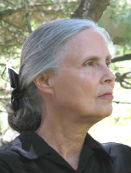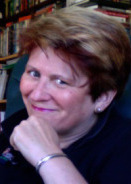What is a Memoir? Memoir Writing Interview Part 1
What is a memoir? Kendra Bonnett and Matilda Butler discuss this question in Part One of our conversation about memoir writing.
Kendra Bonnett and Matilda Butler are memoirists, teachers of memoir writing, and founders of the website Womensmemoirs.com. Their collective memoir, Rosie's Daughters: The "First Woman To" Generation Tells Its Story, won an IPPY National Book Award in 2008.
A Conversation with Matilda Butler and Kendra Bonnett: What is a Memoir?

Matilda:
First of all, I would like to make a distinction between memoir and autobiography, because everyone gets a little confused on that. They really mean two quite different things, yet they are sometimes used interchangeably and it makes it really confusing.
Advertisement:An autobiography is the story of your life to date. It is usually chronologically based, and it starts with when you are young and all the things that happened to you along the way in your life.
An autobiography is—and one of the ways I think about that is as if it was a whole pie --it’s everything. But when you think about a memoir, it’s really a slice of your life. It could be just one time period, and it could be just one aspect of your life. For instance if you have diabetes, it might go across multiple years, and you might look at the diagnosis and how you manage. You might decide, I am not talking about the other things that happened to me. I am not talking about my relationships. I am not talking about my education. I am talking about living with diabetes. And then that would be the focus. So it isn’t a matter of years, it’s really a matter of scope. That then becomes the way that you distinguish the two of them.
Now, having said that, you will sometimes find a memoir with a subtitle like “My Autobiography.” But it really is a memoir because it is a focused part of your life, or one type of experience that you’ve had in your life, or a turning point in your life -- all of those kinds of things. In other words, you don’t really have to account for all of your life. And that’s what begins to make memoir this flowering genre right now, because it is not an overwhelming thing to do. You don’t really have to account for everything that has happened to you.
A memoir really is an opportunity to reflect -- to look inside yourself and to say, "It’s not just all these external things that have happened to me. It’s really, how has something changed me? Why am I the person I am today? What were the big turning points in my life? What has caused me to have the outlook I have?"
That’s really a distinction between autobiography and memoir that I think is an important one. Because then you can begin to work with little vignettes and just say “Oh, I was thinking -- oh, that was really important.” Then you could just write about that. You don’t have to worry about having a full outline on day one. You don’t have to worry that you’ve got it, you know exactly what you are going to write about and you then proceed to write. Because when we’re dealing with memories—memories are really special, and you may always be able to apply the logic and say, “Oh, but today I have to write about A.” And maybe that isn’t what you really want to write about.
Sometimes in my class, someone will walk in and she’ll say, “You know, I was going to write about such and such, and look what came out!” Then she will read what she wrote and it won’t have anything to do with that. That’s because memories are this precious, dear part of us, and as we get into memory, we then remember more things. In classes, I’ve had people say, “I woke up in the middle of the night and I remembered a song that I sang with my husband on our honeymoon 42 years ago, and I had completely forgotten the song.” So, when we work with memory, it actually helps to bring up more memories. And so it is a process you have to be open to.

Kendra: I would add a couple of things. Whereas a person would typically write her autobiography late in her life and write it one time, memoirs are something that we can write many of, and you can write them at any time. If you have had something very interesting happen to you or devastating, or whatever it might be -- something significant at a young age -- and you want to write, you could write a memoir at fourteen or sixteen, and it would be valid, whereas, you couldn’t write an autobiography at that age.
Read more on "What is a memoir?" in Part Two of our conversation about memoir writing with Kendra Bonnett and Matilda Butler.
What is a Memoir - Next Steps
Go to Part 2 of this conversation about writing a memoir.
Join our online course in memoir writing.
Read "smell and memory" entries in our memoir writing competition
Read our interview with author Heather Sellers on memoir writing
Return from What is a Memoir to the main memoir writing page
<< BACK from What is a Memoir to Creative Writing Now Home